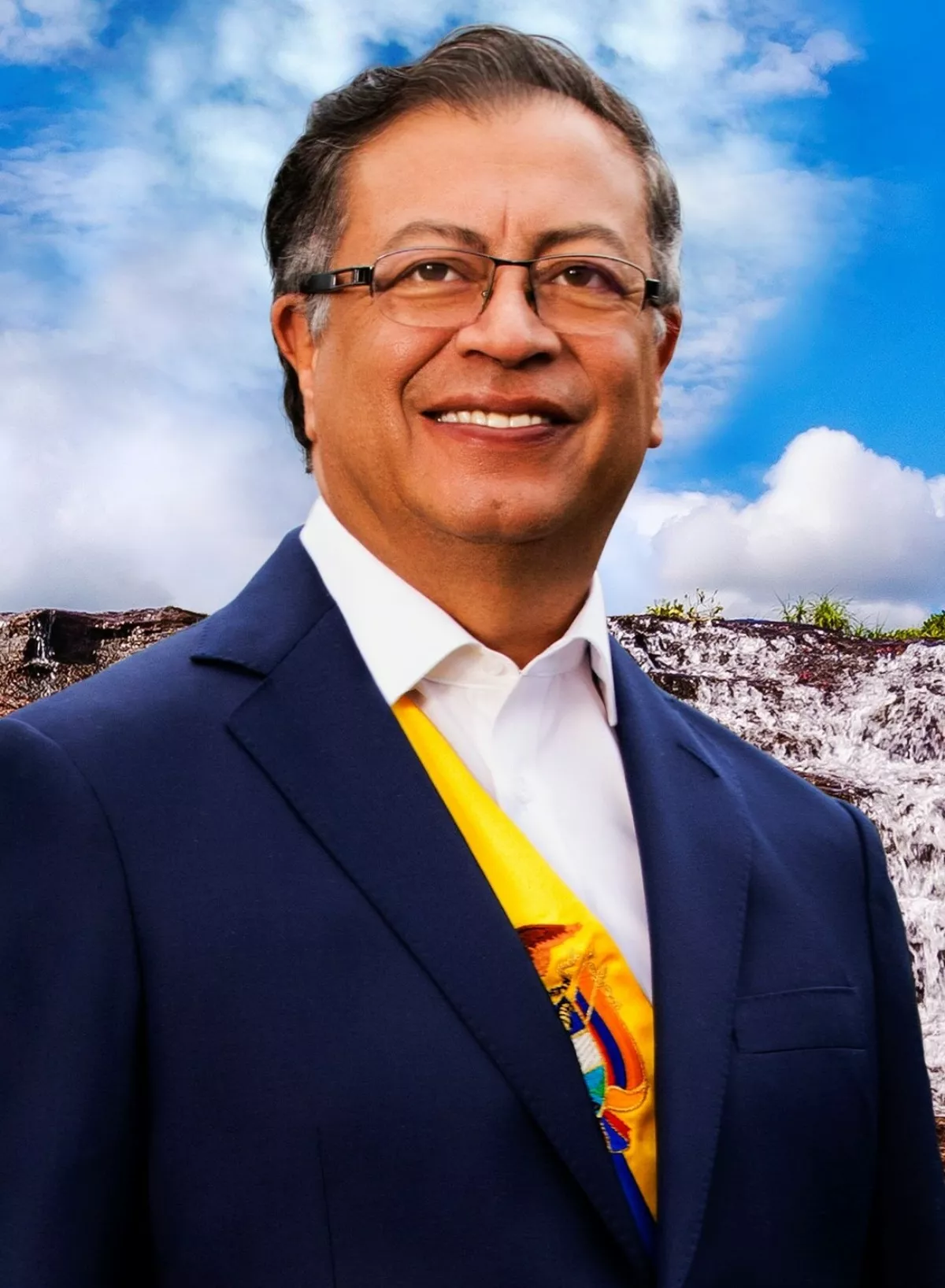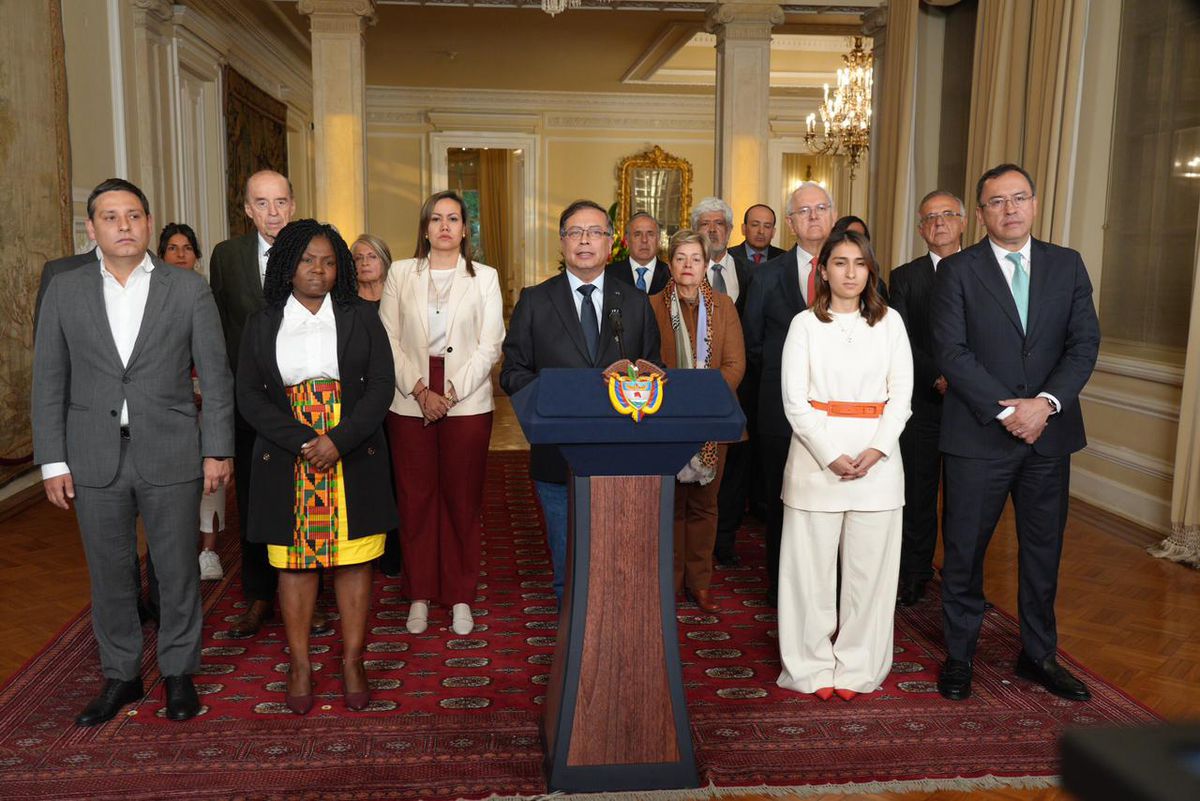Who would have thought that a former rebel could become one of Colombia's most influential political figures? Gustavo Petro's journey from guerrilla fighter to presidential candidate is nothing short of remarkable. His educational background played a pivotal role in shaping his ideologies and leadership style. If you're curious about how education molded this iconic figure, you're in the right place. Let's dive deep into Gustavo Petro's academic journey and uncover the secrets behind his rise to prominence.
Gustavo Petro isn't just another politician; he's a symbol of change for many Colombians. His education isn't just a line on his resume—it's the foundation of his policies and vision for the future. From his early days in school to his advanced studies, every step contributed to making him the man he is today. So, why does Gustavo Petro's education matter? Because understanding it helps us grasp the roots of his progressive thinking and his approach to governance.
Now, before we get into the nitty-gritty details, let's set the stage. This isn't just a boring history lesson. It's a story of transformation, resilience, and the power of knowledge. Stick around, and you'll discover how Gustavo Petro's education became a catalyst for change in Colombia. Ready? Let's go!
Early Life and Educational Beginnings
Childhood and Schooling
Growing up in a modest household, Gustavo Petro's early education laid the groundwork for his future endeavors. Born on July 12, 1960, in Bogotá, Colombia, Petro attended local schools where he excelled academically despite the challenges faced by his family. His teachers often remarked on his sharp intellect and inquisitive nature, traits that would later define his political career.
During his teenage years, Petro's interest in social justice began to take shape. He wasn't just another student; he was someone who questioned the status quo and sought answers to the inequalities he witnessed around him. His high school years were marked by active participation in student organizations, where he honed his leadership skills and developed a passion for activism.
University Years: A Turning Point
Petro's university education at the Universidad Nacional de Colombia was a transformative period in his life. He pursued a degree in Economics, a field that would provide him with the tools to analyze and address the economic disparities in his country. During this time, Petro immersed himself in Marxist theories and revolutionary ideologies, which significantly influenced his worldview.
It was also during these years that Petro became involved with the M-19 guerrilla group, a move that would shape his political trajectory. His academic pursuits didn't stop here, though. Even amidst the turmoil of his activism, Petro remained committed to his studies, using his education as a means to understand and challenge the systems he sought to change.
Gustavo Petro's Academic Achievements
Postgraduate Studies
After his involvement with M-19, Gustavo Petro continued his academic journey, focusing on public administration and political science. He pursued postgraduate studies that equipped him with the knowledge and skills necessary to navigate the complexities of Colombian politics. His decision to further his education demonstrated his commitment to informed leadership.
These advanced studies weren't just about earning degrees; they were about gaining a deeper understanding of governance and policy-making. Petro's academic achievements during this period reinforced his reputation as a knowledgeable and well-prepared political figure, someone who approached issues with both theoretical insight and practical experience.
Research and Publications
Gustavo Petro's contributions to academia didn't stop at formal education. Throughout his career, he has been involved in various research projects and publications that address critical issues facing Colombia. His writings often focus on economic inequality, social justice, and sustainable development, reflecting his ongoing commitment to these causes.
These publications aren't just academic exercises; they serve as blueprints for his policy proposals and legislative initiatives. By sharing his research with the public, Petro aims to educate and inspire others to join the fight for a more equitable society. His work in this area underscores his belief in the power of education to drive meaningful change.
Education as a Catalyst for Change
Impact on Political Career
Gustavo Petro's education has been instrumental in shaping his political career. It has provided him with the intellectual framework to tackle complex issues such as corruption, poverty, and environmental degradation. His understanding of economics and public administration has allowed him to propose innovative solutions that challenge traditional approaches.
Moreover, Petro's educational background has enabled him to connect with a diverse audience, from academics and policymakers to ordinary citizens. His ability to communicate complex ideas in an accessible manner has been a key factor in his success as a political leader. Education, for Petro, isn't just about personal growth; it's about empowering others to create a better future.
Reforms and Initiatives
Gustavo Petro's commitment to education extends beyond his personal development. As a politician, he has championed numerous reforms and initiatives aimed at improving access to quality education in Colombia. From increasing funding for public schools to implementing programs that support marginalized communities, Petro's policies reflect his belief in the transformative power of education.
His initiatives often focus on bridging the gap between urban and rural education systems, ensuring that all Colombians have the opportunity to succeed. By prioritizing education in his policy agenda, Petro aims to create a more inclusive and equitable society where everyone has a chance to thrive.
Challenges and Criticisms
Navigating Political Turbulence
Gustavo Petro's educational journey hasn't been without its challenges. His association with the M-19 guerrilla group and his left-leaning ideologies have often made him a target of criticism and opposition. Despite these challenges, Petro has remained steadfast in his commitment to education and social justice.
Throughout his career, he has faced accusations of radicalism and extremism. However, Petro argues that his policies are rooted in evidence-based research and a genuine desire to improve the lives of all Colombians. His ability to navigate these criticisms while maintaining his focus on education speaks volumes about his resilience and determination.
Addressing Criticisms
While some critics question the feasibility of Gustavo Petro's educational reforms, others acknowledge the importance of his vision. Petro often engages in public debates and forums to address these concerns, using his educational background to provide well-reasoned arguments and counterpoints.
By doing so, he not only defends his policies but also educates the public on the importance of investing in education. His willingness to engage in constructive dialogue demonstrates his commitment to transparency and accountability, qualities that are essential for any effective leader.
Biography of Gustavo Petro
Data and Biodata
| Full Name | Gustavo Francisco Petro Urrego |
|---|---|
| Date of Birth | July 12, 1960 |
| Place of Birth | Bogotá, Colombia |
| Profession | Politician, Economist |
| Education | Universidad Nacional de Colombia (Economics) |
| Political Affiliation | Historic Pact |
Legacy and Future Prospects
Contributions to Colombian Society
Gustavo Petro's contributions to Colombian society extend far beyond his political achievements. His emphasis on education has inspired countless individuals to pursue knowledge and strive for a better future. Through his policies and initiatives, Petro has made significant strides in addressing some of Colombia's most pressing issues.
His legacy is one of hope and empowerment, reminding us that education can be a powerful tool for change. As Colombia continues to evolve, Petro's impact on the nation's educational landscape will undoubtedly leave a lasting impression.
Vision for the Future
Gustavo Petro's vision for the future is rooted in his belief in the power of education to transform society. He envisions a Colombia where every citizen has access to quality education, regardless of their background or circumstances. This vision drives his continued efforts to reform the educational system and promote policies that support lifelong learning.
As he looks to the future, Petro remains committed to his core principles of social justice and equality. His dedication to education ensures that these principles will continue to guide his work and inspire others to join the movement for change.
Conclusion
Gustavo Petro's education is more than just a chapter in his life story; it's the foundation of his political philosophy and the driving force behind his vision for Colombia. From his early days in school to his postgraduate studies, every step of his academic journey has contributed to making him the leader he is today.
As we've explored in this article, Petro's commitment to education has been a defining feature of his career. His policies, reforms, and initiatives reflect his belief in the transformative power of knowledge and its ability to create a more just and equitable society.
So, what's next? We encourage you to share your thoughts and insights in the comments below. Whether you're a supporter of Gustavo Petro or simply interested in learning more about his journey, your voice matters. Together, let's keep the conversation going and continue to explore the role of education in shaping our world. Don't forget to check out our other articles for more insightful content!
Table of Contents


